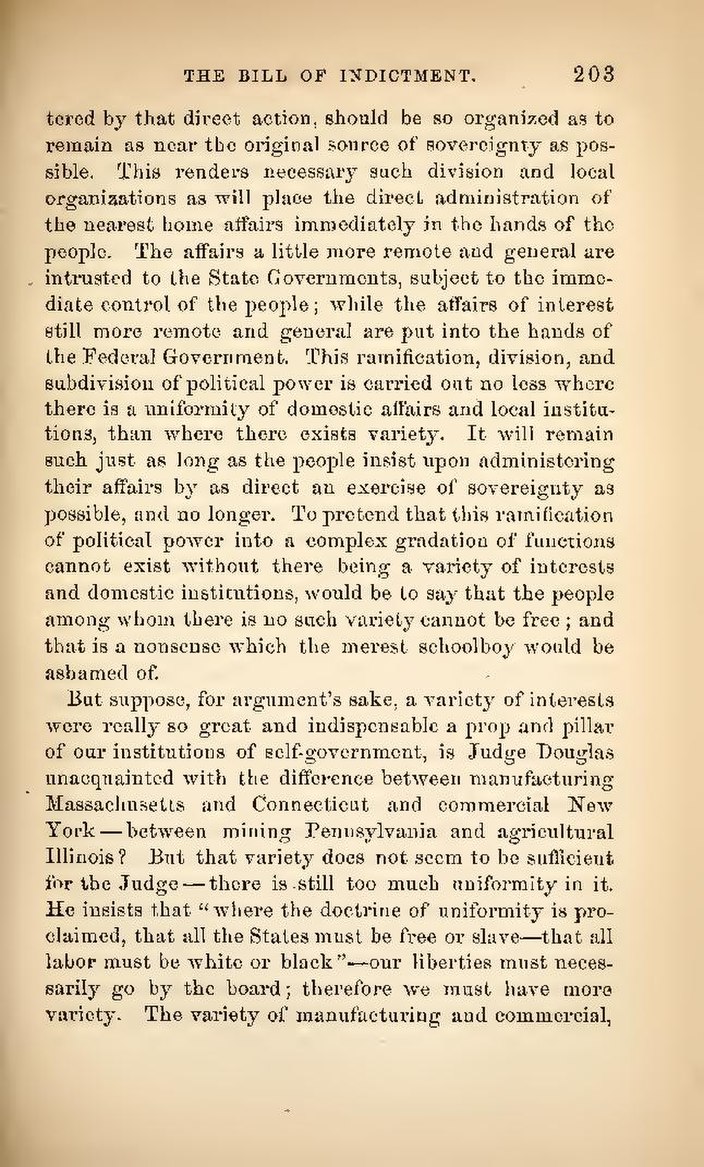tered by that direct action, should be so organized as to remain as near the original source of sovereignty as possible. This renders necessary such division and local organizations as will place the direct administration of the nearest home affairs immediately in the hands of the people. The affairs a little more remote and general are intrusted to the State Governments, subject to the immediate control of the people; while the affairs of interest still more remote and general are put into the hands of the Federal Government. This ramification, division, and subdivision of political power is carried out no less where there is a uniformity of domestic affairs and local institutions, than where there exists variety. It will remain such just as long as the people insist upon administering their affairs by as direct an exercise of sovereignty as possible, and no longer. To pretend that this ramification of political power into a complex gradation of functions cannot exist without there being a variety of interests and domestic institutions, would be to say that the people among whom there is no such variety cannot be free; and that is a nonsense which the merest schoolboy would be ashamed of.
But suppose, for argument's sake, a variety of interests were really so great and indispensable a prop and pillar of our institutions of self-government, is Judge Douglas unacquainted with the difference between manufacturing Massachusetts and Connecticut and commercial New York—between mining Pennsylvania and agricultural Illinois? But that variety does not seem to be sufficient for the Judge—there is still too much uniformity in it. He insists that “where the doctrine of uniformity is proclaimed, that all the States must be free or slave—that all labor must be white or black”—our liberties must necessarily go by the board; therefore we must have more variety. The variety of manufacturing and commercial,
